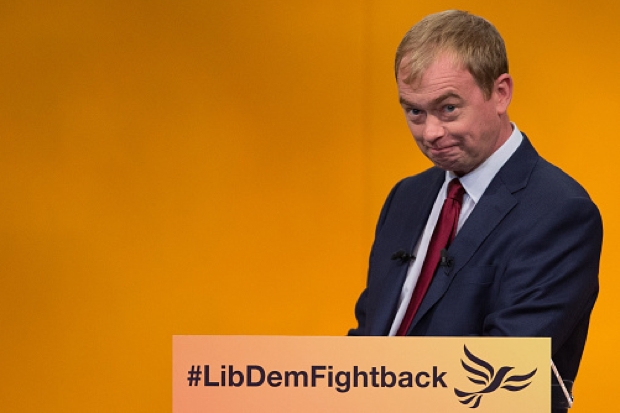The award for most pathetic remark of the week goes to Tim Farron who earlier released a press statement saying this: ‘Just 13 months after the last election the Conservatives have plunged the UK into chaos. It is simply inconceivable that Theresa May should be crowned Prime Minister without even having won an election in her own party, let alone the country. There must be an election. The Conservatives must not be allowed to ignore the electorate, their mandate is shattered and lies in ruins.’
Apart from the long-established principle that we do not automatically have a general election when one Prime Minister resigns and another from their party is elected their place – we had no instant general election with Alec Douglas-Home became PM in 1963, Callaghan in 1976, Major in 1990, Brown in 2007; only Anthony Eden in 1955 went to country straight away – there is a very good reason why we should not now have a general election. We now have a Fixed Term Parliaments Act which has already set the date for the next general election for 2020. That we have this act is largely thanks to Mr Farron’s party, which wanted it in order to ensure that the coalition government formed in 2010 would go the distance, and that David Cameron couldn’t simply call a general election if he thought he could get a majority.
Under the act, an early general election can only occur if the Commons votes for it by a majority of two to one. Introducing the bill on 22 July 2010, Nick Clegg, Farron’s predecessor as Lib Dem leader, grandly declared that it would remove a Prime Minister’s right to call an election ‘for pure political gain’ and that henceforth elections would cease to be the ‘plaything of governments’.
Indeed. There is little doubt that if Theresa May could call a general election tomorrow there would be huge political gain in doing so. Labour would go into the election with a leader who has just lost a vote of confidence by his own parliamentary party. Unsurprisingly, the polls are looking good for the Tories.
But there is clearly a need to get on with fulfilling the will of the British people, as expressed in the referendum, and negotiating Brexit. A month-long general election would delay matters and prolong uncertainty. Contrary to Farron’s imagination – I presume he sees a regretful electorate trying to undo the referendum result by voting in the Lib Dems on a promise to lay that result aside – it would hardly change much. A re-elected Conservative government would go ahead with Brexit negotiations.
But if Farron really does fancy his chances, then why doesn’t he table a motion calling for a general election himself? I can’t imagine many Labour MPs voting for it in current circumstances. There’s nothing in it for the SNP who already hold all but three seats in Scotland and want another independence referendum, not general election. True, the Lib Dems might make a few gains. But wouldn’t that amount to doing what Clegg called having a general election ‘for pure political gain’?







Comments